-

By Athar Parvaiz and Animesh Roul / In Asia Pacific, Society & Education / October 5, 2010
-
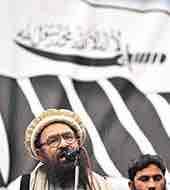
Known for his Saudi Salafist links, idolization of Osama bin Laden and for keeping close liaisons with Mullah Omar and other Taliban leaders in the Afghanistan-Pakistan region, Abdur Rahman Makki is one of the founding members of Markaz Dawa-wal-Irshad (MDI). MDI is the parent body of Pakistan based terrorist-linked charity Jamaat-ud Dawa (JuD) and its militant wing, the deadly
-
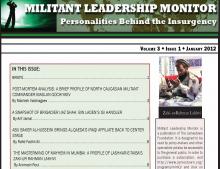
Outside the Indian subcontinent not much was known about the most prolific militant commander of Lashkar-e-Taiba (LeT), Zaki-ur Rahman Lakhvi, until the United States Treasury announced on May 27, 2008 that they had froze the assets of four of the top LeT leaders including Lakhvi. [1] Exactly six months later, Lakhvi’s name entered into terror infamy. With his jihadi network, he had masterminded the Mumbai attacks in November 2008, which sent ripples across the world.
-

Sheikh Farid’s arrest, as one of the key figures advocating for global jihad in Bangladesh, is considered to be a crucial catch for investigating agencies in that country. Farid’s capture is useful primarily for unraveling many mysteries behind HuJI’s overt political agenda, funding networks and various subversive activities inside Bangladesh and in neighboring India and Burma.
-
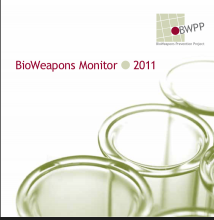
The BioWeapons Monitor is an initiative of the BioWeapons Prevention Project (BWPP)—a global network of civil society actors dedicated to the permanent elimination of biological weapons and of the possibility of their re-emergence—to help monitor compliance with the international norm prohibiting biological weapons, laid down chiefly in the 1972 Biological Weapons Convention (BWC). Particularly, it aims to increase the transparency of activities relevant to the BWC, which the current treaty regime does not accomplish sufficiently.
-

Often tagged as the second most lethal India-centric terror group based in the Pakistani Punjab, Jaish-e-Muhammad (Army of [the Prophet] Muhammad - JeM) is once again raising its head under the guise of charity in an apparent attempt to revitalize its fledgling stature in the jihadi landscape of South Asia.
http://www.jamestown.org/single/?no_cache=1&tx_ttnews%5Btt_news%5D=38664
-
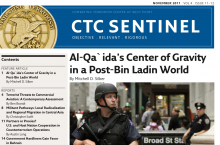
Jamaatul Mujahidin Bangladesh (JMB), an indigenous terrorist group founded in 19981 and committed to establishing an Islamic state in Bangladesh through violence, stormed onto South Asia’s jihadist scene with a synchronized, country-wide bomb assault on August 17, 2005.2 The group detonated approximately 460 bombs within a 30-minute period at 300 locations in 63 of
-
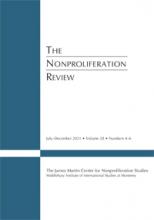
During its thirty-five years, the Biological Weapons Convention (BWC) has been scarred by treaty violations, failed compliance negotiations, and ambiguous treaty language. Essentially a bruised paper tiger, the BWC adds no clarification to its distinction between biological activities for peaceful versus hostile purposes and has amplified—rather than lessened—mistrust in states' biological research and development potential. For the past two decades, these circumstances have generated multilateral annual discussions on BWC issues.
-

Executive Summary: In the weeks following the July 13 bomb explosions in Mumbai, responsibility for the attacks has yet to be determined. Investigative agencies have not yet pinpointed a suspect nor has any terrorist group claimed the blasts as its own doing, perhaps in order to complicate the investigation or delay the process. The triple blasts, which killed 24 people and injured over one hundred, mark the first major terrorist attack in Mumbai since the November 2008 attacks orchestrated by Pakistan’s Lashkar-e-Taiba (LeT).
-
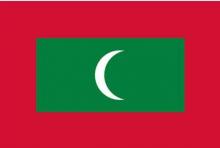
Although the population of the Maldives is one hundred per cent Muslim, mostly Sunni, and the government prohibits the practice of other religions, Maldivian society was largely moderate and tolerant until comparatively recently.1 Today, however, Islamic clerics and lay preachers disseminate a radical strain of Islam across the country, mostly in impoverished and secluded locales such as Ukulhas (in North Ari atoll).
Paxton ported to drupal by DropThemes.in